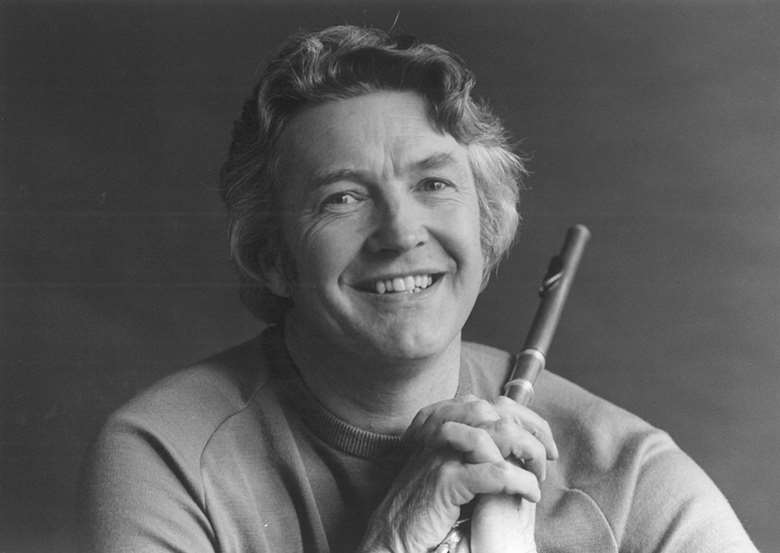Flautist Peter Lloyd has died at the age of 86
Gramophone
Friday, April 27, 2018
The former principal flute of the LSO and teacher at the RNCM trained in Paris with Rampal and Moyse

The British flautist Peter Lloyd has died at the age of 86. Lloyd spent 20 years with the London Symphony Orchestra, having replaced James Galway as co-principal (alongside William Bennet – ‘Wibb’) in 1967. He was also a much-loved teacher, most significantly at the Royal Northern College of Music (1993-2012).
Lloyd was born in Dorset and began flute lessons locally before studying at the Royal College of Music with Edward Walker. He was excused from National Service on the grounds of his asthma, and joined the National Youth Orchestra: ‘I got chucked out straight away because the flute teacher, Gareth Morris, didn’t think I was good enough,’ Lloyd recalled. ‘And he was right, too.’ This humble attitude and the desire to improve never left him, even at the pinnacle of his career.
His first playing job was as second flute with the (now Royal) Scottish National Orchestra. Inspired by the players around him, he took leave to study in Paris with Fernand Caratgé. On returning to the UK, he returned to the SNO as first flute and then transferred to the BBC Northern Orchestra (now the BBC Philharmonic) in Manchester, staying there until 1967.
After another spell of studying – first with Geoffrey Gilbert and then in Paris with Jean-Pierre Rampal – Lloyd joined the LSO, turning down a position with the Hallé to do so. During the orchestra’s ‘golden age’ he enjoyed playing under conductors such as Previn and Bernstein; Previn conducted him in Nielsen’s Flute Concerto in 1972, and, four years earlier, he was involved in Bernstein’s classic performance of Verdi’s Requiem at St Paul’s Cathedral (‘I found it deeply moving and spiritual,’ Lloyd later told Gramophone). In pursuit of a bigger sound that could project across an orchestra, he took further study in France, this time with Marcel Moyse whom Wibb had recommended.
A respected chamber musician as well as an orchestral player, Lloyd also taught at the Guildhall School of Music and later, encouraged by Gilbert, at the University of Indiana-Bloomington in the US. Dismayed by the emphasis on sport, he returned to the UK and to the RNCM (he was made an Honorary Fellow in 1999), until a bout of pneumonia, exacerbated by his asthma, prompted his decision to retire (he had already withdrawn from playing professionally in 1993).
Lloyd’s distinctive tone (‘You don’t make a sound, you allow it’ he would tell his students) can be heard on numerous LSO recordings of John Williams’s movie soundtracks, in particular Star Wars (including the tender flute solo in Princess Leia’s Theme). Many of Williams’s flute parts were written with Lloyd’s sound in mind, and, indeed, his Flute Concerto (1969) was written expressly for him. Lloyd’s ‘glorious flute playing’ in Debussy’s Prélude à L’après-mid d’un faune was hailed in Gramophone by Edward Greenfield (2/73) in a review of Stokowski’s 60th anniversary concert (Decca, nla), and again later as part of Previn’s Gramophone Award-winning recording of the work (12/79), while a review of Verdi’s Rigoletto under Bonynge (Decca, 5/73) highlighted Lloyd’s ‘most beautiful tone’. In a review of ‘Works for Flute and Piano’ (9/92), an all-French recital programme, Lloyd was praised for his ‘sensuous and evanescent romanticism’ and particularly for his ‘superb performance’ of the Poulenc Flute Sonata.











